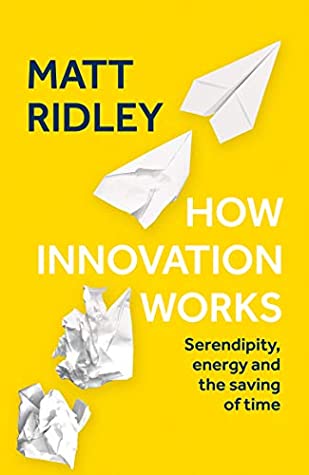More on this book
Community
Kindle Notes & Highlights
by
Matt Ridley
Read between
May 16 - June 27, 2021
Between 1996 and 2014, the proportion of startups begun by people in their twenties halved. Startup rates are falling in sixteen out of eighteen economies, according to an OECD study.
The problem is even worse in Europe, where creative destruction has almost ground to a halt in the cuddly embrace of the European Commission with its tendency to write rules that favour incumbent firms.
Of Europe’s 100 most valuable companies, none – not one – was formed in...
This highlight has been truncated due to consecutive passage length restrictions.
To the extent that incomes appear to be stagnating and opportunities for social mobility drying up, the cause is not too much innovation, but too little.
we should fear an innovation famine rather than an innovation feast.’
‘The machinery of creative destruction is slowing down, the evidence of which is increasing corporate profits, declining new firm formation, and disturbingly incr...
This highlight has been truncated due to consecutive passage length restrictions.
China will innovate on a grander scale and faster than anywhere else. This despite the fact that its politics is authoritarian and intolerant, because a lot of that happens at a level above the entrepreneur, who is surprisingly free of petty bureaucratic rules and delays, so long as he or she does not annoy the Communist Party, and free to experiment.
Things that require five different apps in the West can be done on one app in China.
What explains this speed and breadth of innovation fury? In a word, work. Chinese entrepreneurs are dedicated to the 9–9–6 week: 9 a.m. to 9 p.m., six days a week.
Willingness to put in the hours, to experiment and play, to try new things, to take risks – these characteristics for some reason are found in young, newly prosperous societies and no longer in old, tired ones.
London takes three decades to (not yet) build a single new runway for its main airport, while the consultants get rich from investigating what will happen to every newt, bat and noise meter within miles.
Washington lays on a feast for regulators, lawyers, consultants and rent seekers sucking the vital juices from entrepreneurial enterprises. Central banks look down their noses at cryptocurrencies and digital fin-tech. Just as in Ming China, Abbasid Arabia, Byzantium and Ashokan India before them, these mature civilizations lose the innovation bug and pass the buck.
the stories of innovation that I have documented in this book teach a lesson that it relies heavily on freedom.
without innovation we face a bleak prospect of stagnant living standards leading to political division and cultural disenchantment. With it, we face a bright future of longevity and health, more people leading more-fulfilled lives, astonishing technological achievements and a lighter impact on the planet’s ecology.
He was only one of many people who conceived the idea of the light bulb, but he was the one who turned it into a practical reality. He did so not by genius, but by experiment.
‘I tell you genius is hard work,’ he added, ‘stick-to-it-iveness, and common sense.’ I repeat that Edison tested 6,000 plant materials till he found the right kind of bamboo for the filament of a light bulb. The perspiration, not the inspiration, is the bit that much of the West has forgotten or forbidden.
And it was a bounty of repeated experimentation that led to the growth of the internet and the expansion of the world of digital communication.
Innovation is the child of freedom and the parent of prosperity. It is on balance a very good thing. We abandon it at our peril.
The peculiar fact that one species above all others has somehow got into the habit of rearranging the atoms and electrons of the world in such a way as to create new and thermodynamically improbable structures and ideas that are of practical use to the wellbeing of that species never ceases to amaze me. That many members of the species show little curiosity about how this rearranging comes about, and why it matters, puzzles me. That many people think more about how to constrain rather than encourage it worries me. That there is no practical limit to the ways in which the species could
...more
The amazing past, puzzling present, worrying near term, but exciting future of a world that embraces freedom and innovation.


